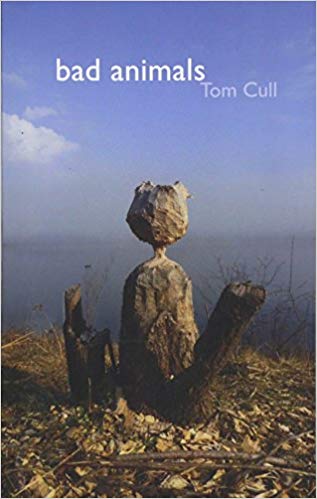Tom Cull's Bad AnimalsReviewed by Aaron Schneider
|
|
The poems in Tom Cull’s debut collection, Bad Animals, resemble its titular creatures: they are a bit unruly, sometimes disruptive, occasionally difficult to pin down, sliding easily across the borders between modes, consistently surprising in the best sense of the word. The book is divided into three sections. The first two are filled with shorter poems that cover a diverse range of subject matter—the Thames River in London, Ontario, a waterway that is close to Cull’s heart and central to his artistic practice, environmental concerns, his roots in Huron County, the fauna of southern Ontario, his father, dad bods, MMA, and the change room at the local YMCA. The third section is a long poem that follows five vacuums that are thrown into the Thames and make their meandering way down the river. For all its diversity, the collection hangs together well—the tonal shifts between poems, and often within poems themselves, are deft, and often revelatory.
Perhaps the most striking poems in he book are some of its quietest. Included alongside the more overtly political poems, the ecological lyrics and humorous pieces, such as the ode to the YMCA men’s change room “The Dinks Are Out,” are intimate poems that strike a note of reverence and introspection, and that contain some remarkable lines. In “Shelter,” Cull watches his partner dance with her cat: |


